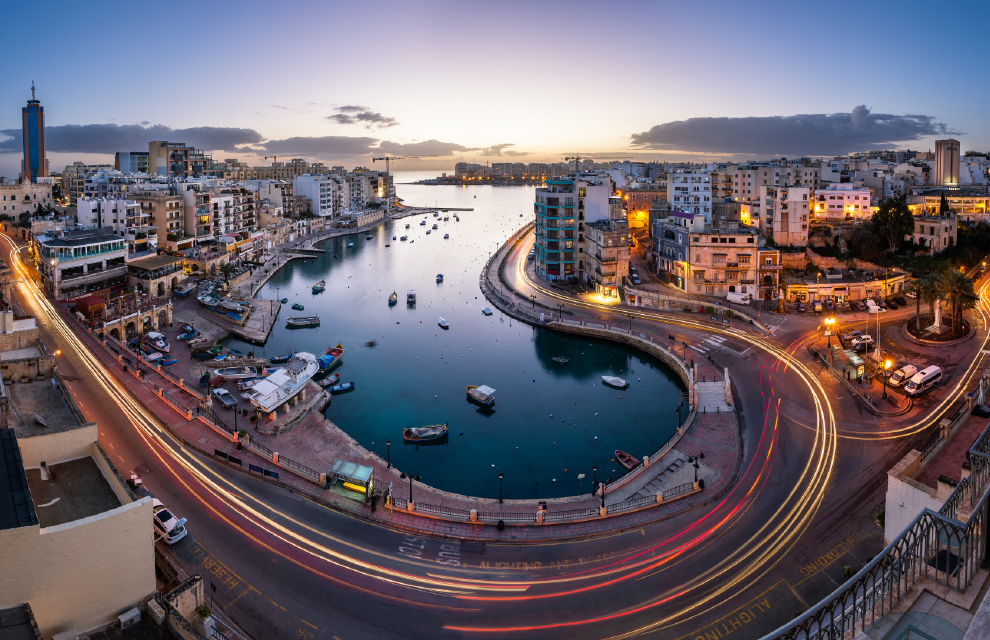Malta expects to expand its captive position in Europe with its unique PCC legislation and ongoing innovation focus
Malta boasts a strong economy, which was confirmed when it received an A+ rating from Fitch in January last year. This was affirmed again last month.
The country, like the rest of the world, was hit with the COVID-19 pandemic in early 2020, but industry experts suggest the pandemic had little impact on the captive market.
That being said, Malta only licensed one additional captive last year, according to Romina Bonnici, senior manager, regulatory and compliance at Mamo TCV Advocates.
But Bonnici suggests the number is “anticipated to increase” in view of the increased risk appetite which the Malta Financial Services Authority (MFSA) has recently shown in relation to captive structures. As we start the new year, Bonnici anticipates that the ‘new normal’ will prevail in 2021 with the emergence of technological innovations and new digital solutions which will further transform the way in which insurance business is carried out.
She adds: “This will apply to all types of (re)insurance undertakings including captives.”
Elsewhere, although Malta only welcomed one new captive, Ronan Ryan, managing director, Robus Risk Services (Malta), says he is seeing an uptick in captive enquiries from a wide range of company sizes and industries.
Ryan says: “We expect to see existing captives being asked to participate in new lines of business and possibly more sophisticated (re)insurance structures being involved.”
“There may also be a demand to increase capital efficiency by way of loss portfolio transfers for older lines of business and this is where the run-off market will have a role to play,” he adds.
Working to attract more business and ahead of competitors, the MFSA published its supervisory priorities for 2021.
The five cross-sectoral priorities included corporate governance and culture; financial crime compliance; the impact of COVID-19; ICT risk and cybersecurity; and fintech and innovation.
Edmond Zammit Laferla, partner at Mamo TCV Advocates, expects that the MFSA will prioritise the need for (re)insurance undertakings including captives “to align their internal control framework to meet with the MFSA’s expectations”.
Brexit
As of 1 January 2021, the UK officially left the EU. Being a member of the EU, the MSFA highlighted in its priorities for this year that “it is not excluded that some market volatility and disruption to financial services could arise from the UK’s exit from the single market at the end of the transition period”.
But MSFA explains that it will continue engagement with the industry to mitigate the risk posed to the economy, consumers, the financial system and the regulatory environment.
In preparation for a hard Brexit, Bonnici states that during 2020, Malta continued to see a further influx of Brexit-driven applications/licenses, with some international entities choosing to set-up a standalone insurance company while other UK or Gibraltar-based entities taking the route of creating a protected cell into existing protected cell company (PCC) structures.
Ryan points out that there has been a particular interest for cell insurance structures for smaller books of EU business, but by far the most significant interest has come from the intermediary market.
Speculating on whether Malta will benefit from Brexit as a captive domicile, Ivan Grech, chief operations officer at Finance Malta, states: “Brexit should definitely be a boost for Malta to help it confirm itself as a captive destination of choice.”
Grech explains that more traditional ‘captive jurisdictions’ which fell under the umbrella of the UK are now ruled out of the race when it comes to EU risks.
With the general captive destinations of choice within the EU being limited, and Malta being the only one with PCC legislation, Grech says: “2021 looks upbeat for Malta in relation to captives seeking solutions for their EU risks.”
But it isn’t all coming up roses, Zammit Laferla suggests that Brexit will also create challenges particularly in view of the insurance industry’s historical ties with the UK.
For example, Maltese insurance intermediaries will not be permitted to use the services of UK intermediaries unless the latter obtain an insurance intermediary license from an EU-based jurisdiction.
“To date, not all UK intermediaries have set-up an EU-based counterpart and Malta did not implement a temporary permission regime for the insurance sector which would have enabled such UK entities to continue certain business after 1 January 2021,” Zammit Laferla adds.
Technology
In 2018 it was reported that the Maltese government was working on initiatives surrounding blockchain and emerging technologies.
On 20 July 2018, the Maltese Parliament approved three new pieces of legislation; the Malta Digital Innovation Authority Act; the Virtual Financial Asset Act and the Innovative Technology Arrangements and Services Act.
Bonnici explains that they laid the foundations for Malta’s so-called ‘innovative technology’ sector, and established the smallest EU member state as one of only a handful of jurisdictions worldwide with a fully regulated industry for businesses operating in the distributed ledger technology (DLT) sector.
As blockchain requires heavy investment in information technology infrastructure, Zammit Laferla suggests it will take a few years until Malta will see a prevalent use in the insurance industry.
However, he highlights, over the long term not having blockchain technology will be a competitive disadvantage.
Zammit Laferla adds: “With collaborative regulators, educated workforce and local expertise, Malta is well placed to become the natural hub for this new technology- based industry.”
In May last year, Babel Cover, a technology startup, started the development of its range of digital first inter-connected financial services products, following its announcement for the project in December 2019.
The intention of the pilot was to perform live and controlled product and technology testing laying the framework for the release of new products and more countries.
But Ryan suggests the initial influx of new entrants has been less than expected, with progress moving at a slow but steady pace.
He adds: “It is still very much on the government agenda and with such investment a flourishing blockchain and digital economy sector can be achieved.”
PCC
By being a member of the EU, like the 27 other countries in Europe, Malta has to follow the same guideline, such as Solvency II. However, by having PCC legislation, Malta has something that makes it stand-out in the competitive European market.
Malta is the only full EU member state with protected cell legislation, which came into force in 2004. This is used for captives, direct insurance including consumer business, (re)insurance, brokers and insurance managers, all regulated by the MFSA.
Reflecting on how crucial the PCC legislation is for Malta, Julian Boffa, regulatory advisor at GANADO Advocates, states many companies are opting for Malta as their base jurisdiction because of the attractiveness of the PCC legislation and at least its availability in Malta.
He adds: “It certainly gives Malta that competitive edge.”
PCC legislation is considered to be “one of the crown jewels of Malta’s insurance industry”, according to Bonnici, which sees Malta as the only EU jurisdiction having such legal framework in place with over 15 years of practical experience.
She adds: “In addition, the application of the securitised cell company concept makes Malta the first EU member state to legislate for the use of protected cell companies as securitisation vehicles.”
Looking at whether Malta will explore more into the insurance-linked securities (ILS) market in more depth, Grech notes the relevant legislation is already in place in Malta, with the first structures being set up in 2020.
The legislation is there, Boffa explains, it is more for the ILS market to explore the opportunities which Malta offers, rather than the other way round.
With the first structures already ‘testing the waters’, the ILS market is one major area expected to really take-off for Malta this year.
In addition, Zammit Laferla notes: “There is an opportunity for small to medium-sized deals which can benefit from lower set-up costs and faster licensing turnarounds, where timing is a fundamental factor especially in the ILS world.”
“While Malta has the necessary regulatory framework, it is still waiting for that breakthrough which will put Malta on the ILS map,” he adds.





